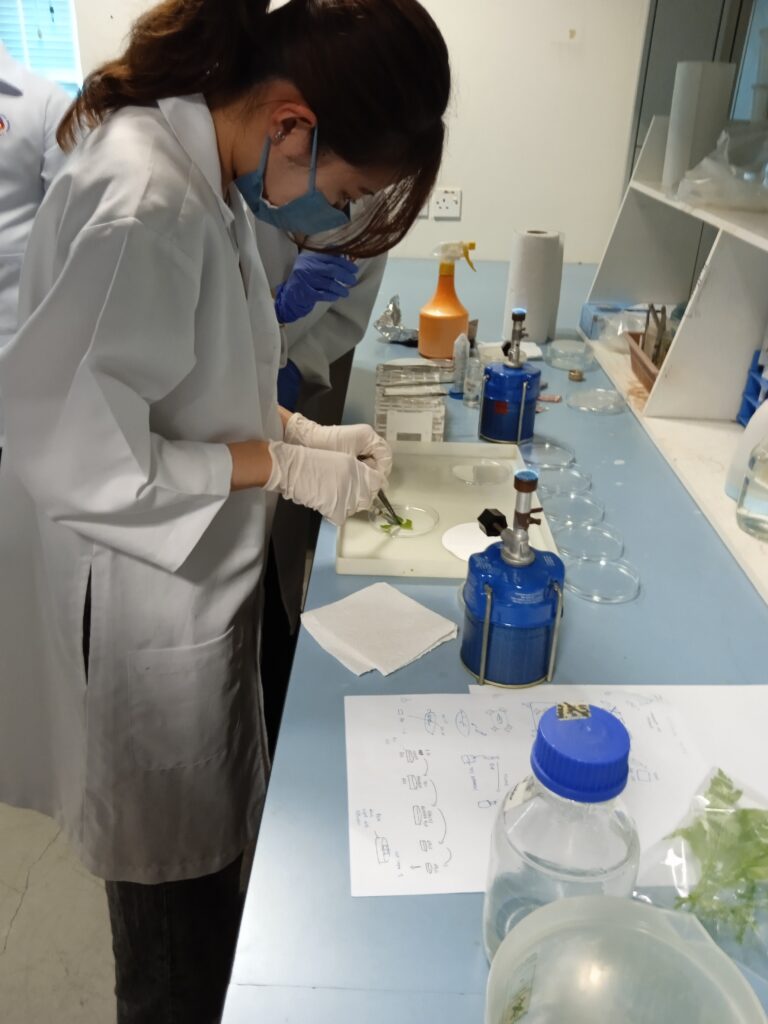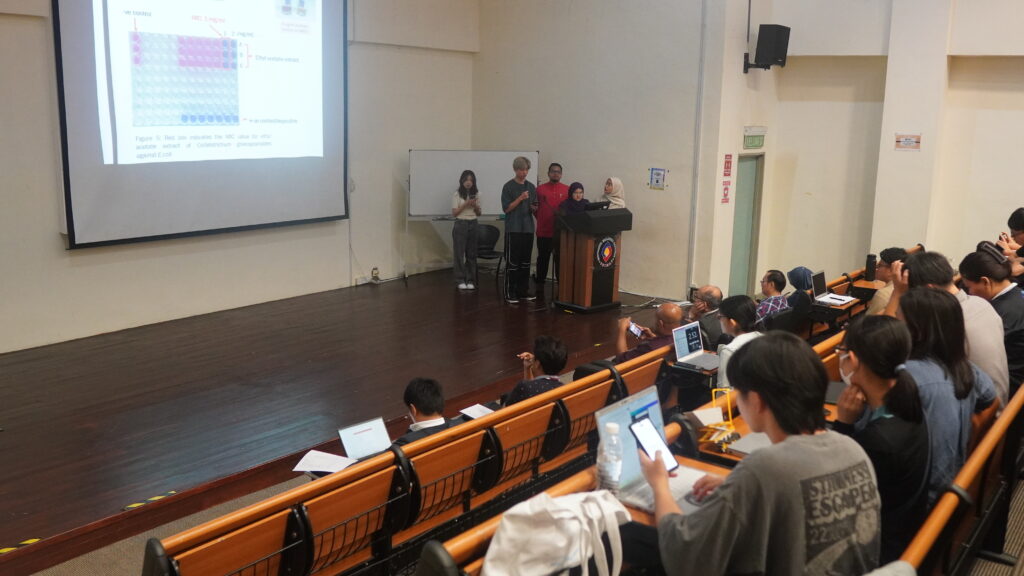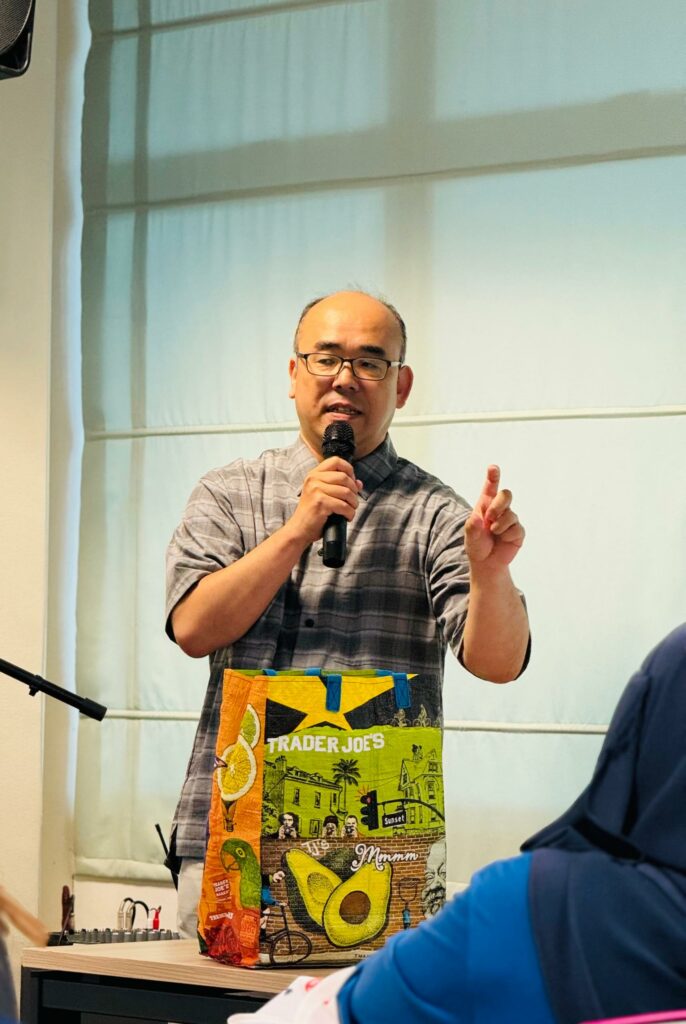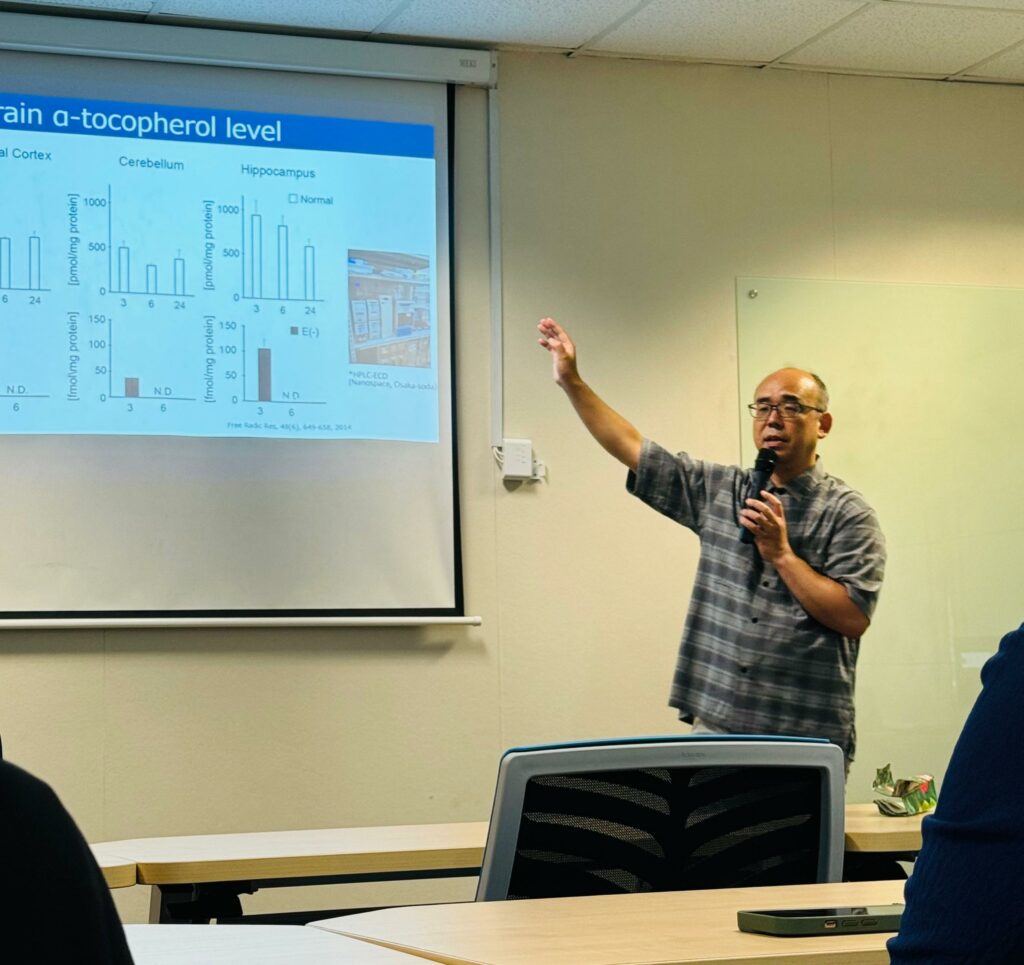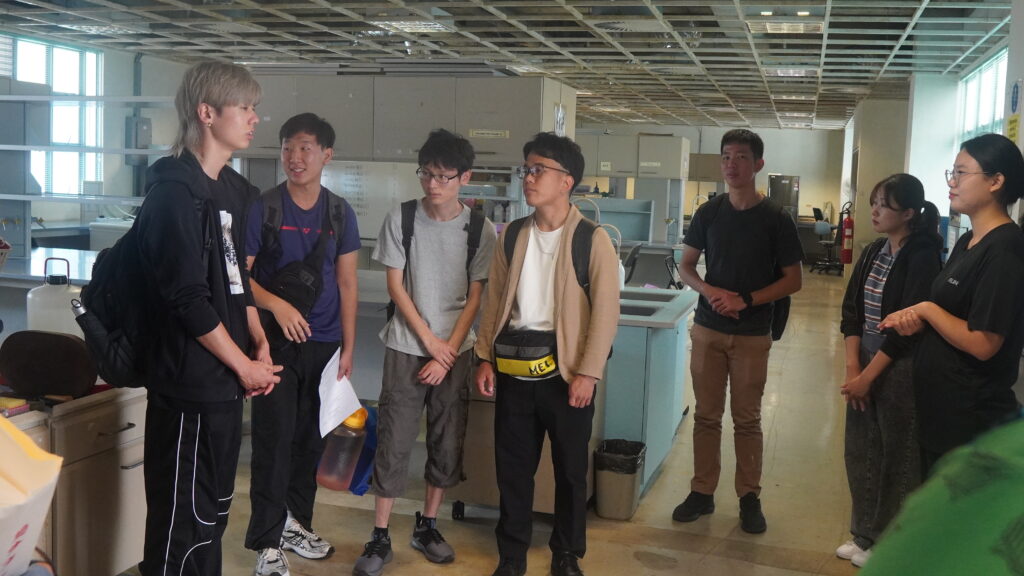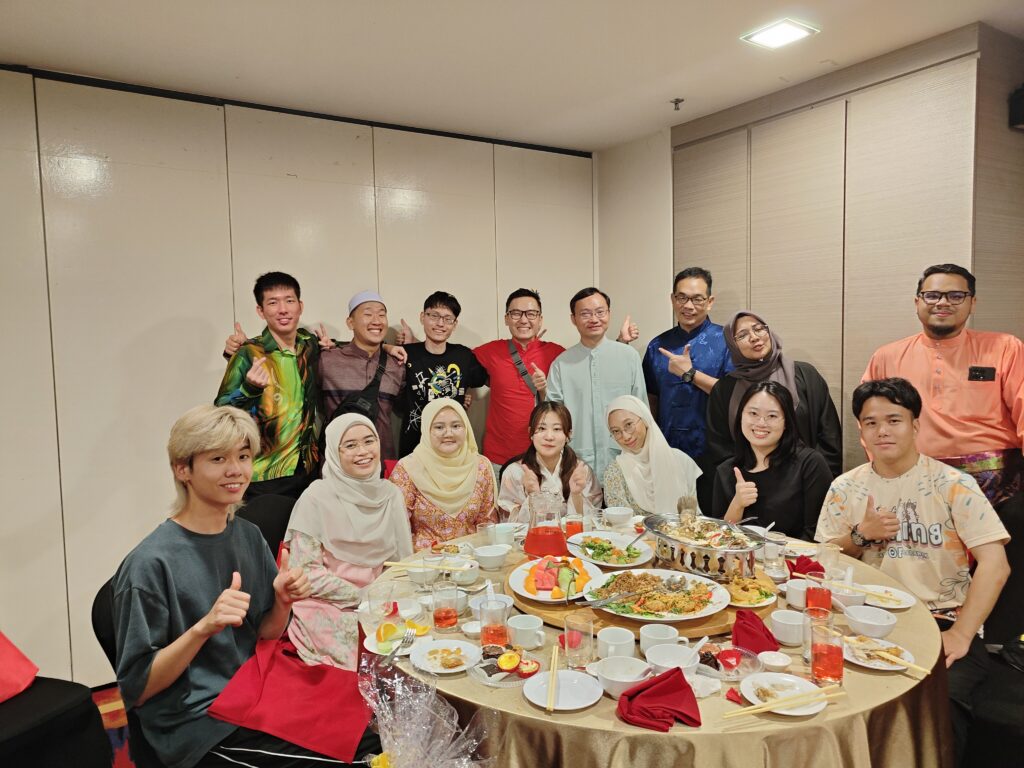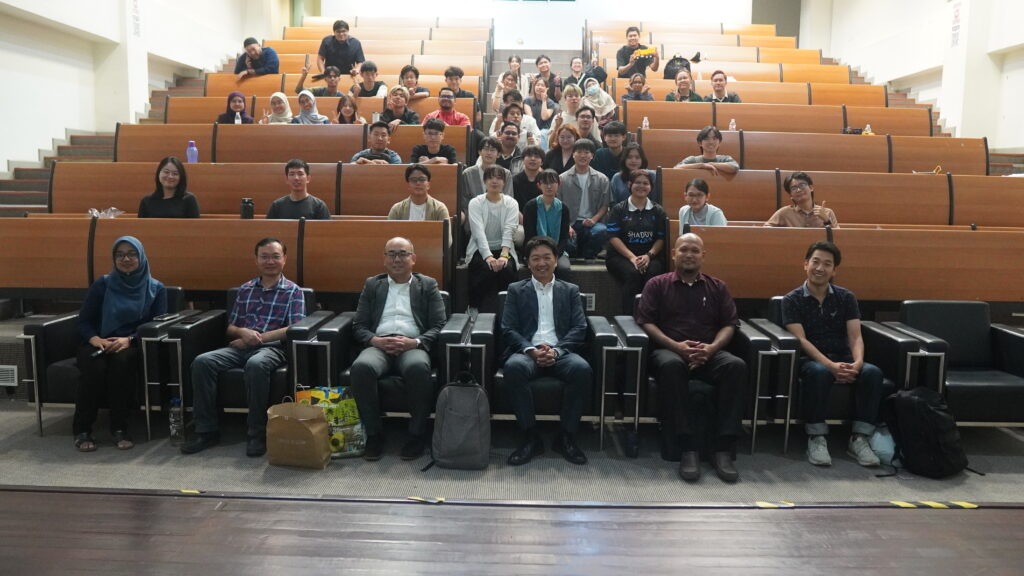
FRST and SIT delegations
Kota Samarahan – The Global Problem-Based Learning Program 2024 (GPBL) between Universiti Malaysia Sarawak (UNIMAS) and Shibaura Institute of Technology (SIT) from Tokyo, Japan, commenced on August 28 and concluded on September 8, 2024. The Faculty of Resource Science and Technology (FRST) welcomed and hosted the SIT delegation, which included two professors and four students. Dr. Wee Boon Siong, leading the FRST delegation, coordinated the program with the help of five lecturers, three staff members, and seven participating students.

During the program, the participating students made strides in antimicrobial research, focusing on fungi isolated from Oenanthe javanica, also locally known as Chinese celery, a plant traditionally known for its medicinal properties. They explored the potential link between the plant’s antimicrobial effects and secondary metabolites produced by these fungi. Through isolation and analysis, the students aimed to identify new bioactive compounds with therapeutic potential. This research not only aided in discovering alternative antimicrobial agents but also deepened their understanding of the complex interactions between plants and their microbial partners, offering valuable insights into natural medicine. Apart from that, the students also worked on the physicochemical analysis of tomatoes subjected to ripening at different storage conditions, and the results from this study will provide valuable insight into fruit preservation techniques, supply chain management, and quality control processes that ensure quality and freshness during transportation and distribution.
This program also included sharing research by SIT expert Prof. Dr. Koji Fukui on the topic of oxidative stress-induced cognitive dysfunction and antioxidant protection. Prof. Koji emphasized that an imbalance of free radicals can cause oxidative stress, which can lead to cognitive decline. However, antioxidants can protect brain cells by neutralizing these harmful molecules, potentially preventing or slowing down neurodegenerative diseases. Antioxidants such as vitamins C and E, flavonoids, and polyphenols neutralize free radicals, reducing oxidative damage in the brain. He concluded that research suggests that regular intake of antioxidant-rich foods (like berries, nuts, and green leafy vegetables) or supplements may offer neuroprotective benefits.

The strengthening of international collaboration between UNIMAS and SIT has bolstered these programs through innovative research projects. This partnership fosters a unique synergy that leverages the expertise and resources of both institutions, enabling students to engage in ground-breaking research with global impact. Through this collaboration, both universities are committed to advancing scientific discovery and addressing pressing global challenges in health, science, and sustainability. This partnership not only enhances the academic experience for students but also strengthens the international scientific community by promoting shared knowledge and cross-border innovation.
